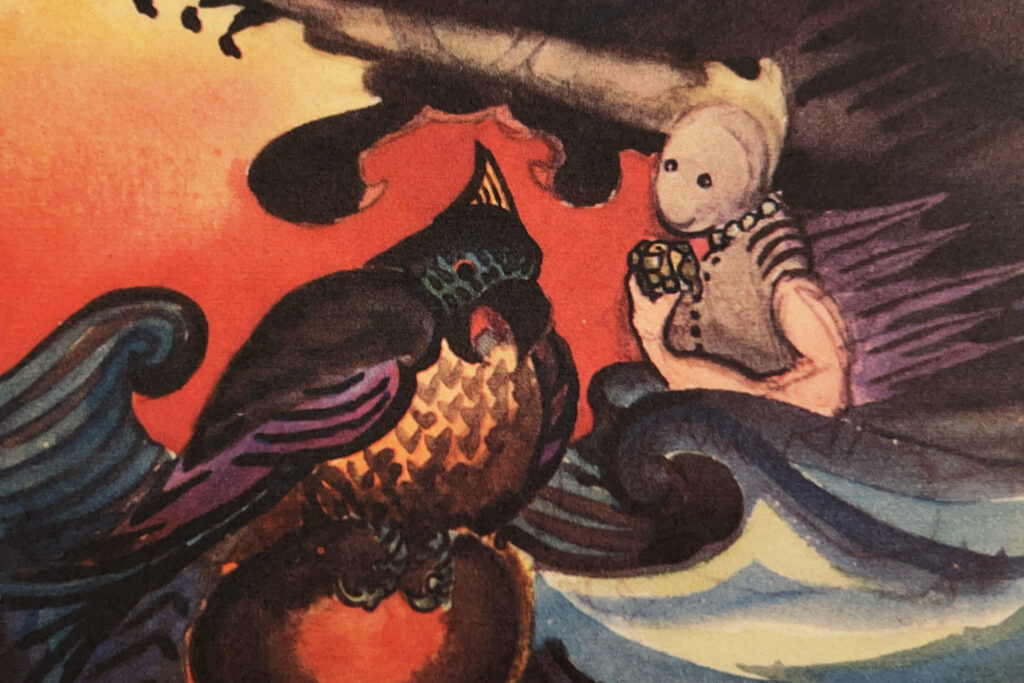A summer Saturday in Dallas and the boy Howard sat out on the back steps, knees up, propping in between, an old single load, twelve-gauge shotgun. While he steadied and squeezed the butt in one hand, the other, with studied unbroken slowness, wrapped a long piece of friction tape around and around the stock—for beginning at the toe of the butt and stretching up about five inches was a thin dry crack in the old wood.
His mother came out, down off the back porch carrying an enamelled basin heaped with twists of wet, wrung clothes.
“You wantta be careful with that old gun,” she said, making a slight frown.
A squat woman and dark-haired, almost eastern in the intensity she tried to bear on situations, her face was perhaps too open, eyes too widely spaced, and the effect was ever what she calculated. She would not suspect, however, that within the block only a few could take her seriously.
Her boy Howard did, of course, though if others were present he might be embarrassed, or a little irritated.
“Aw now you’re kiddin’,” he said, wanting mainly to reassure her about the gun.
She had just given him a dollar for the week-end, and before dark he would have spent over half of it. Sitting now on the back steps he could reckon exactly how it would go. And with her standing there talking, he was aware, too, that except for the show she had no idea at all how he would spend the money.
At the kitchen table his father treated it lightly.
“Where you goin’ boy? Shootin’?”
“Aw just fool aroun’,” said Howard, looking away, eating slowly at a piece of bread, buttered and covered with sugar.
“Who, you and Lawrence? What’re y’all goin’ after?
“Aw I dunno,” said Howard, “just fool aroun’, I guess.”
“Where’re you and Lawrence goin’, Howie?” asked his mother, back at the sink again.
“Aw out aroun’ Hampton Airport, I guess,” he said.
“You wantta be careful out there at Hampton,” said his mother, “with the planes comin’ in and all.”
Howard tried to laugh, even to catch his father’s eye.
“They ain’t any planes there now,” he said, sheepish at having to be impatient with her, “they closed it down, didn’t you know that?”
“I don’t want you goin’ up in that trainer-plane either,” his mother went on as unhearing, almost closed-eyed, packing faded dripless lumps of cloth into the basin.
“Aw now you’re kiddin’,” said Howard, “it don’t cost but three dollars for fifteen minutes. Not likely I will, is it?”
At the table, though, his father spoke about the gun, the danger, abstractly, as if he himself had never fired it. And yet, when he saw the box of shells on the table, he opened it and shook two or three out, holding them loosely, so as to appear casual, familiar, he who had not held a gun in thirty years.
“Look like good’uns,” he said finally, “what’d they cost?”
Howard reached Big Lawrence’s house by way of the alley. Stepping through an open place in the fence two houses before, and cutting across these back yards, he could hear Lawrence on at the house and he saw his shadow dark there behind a window screen.
“Ka-pow! Ka-pow! Ka-pow!” was what Lawrence said.
It was a small room.
Big Lawrence sat out on the edge of the bed, and all down around his feet the scattered white patches lay, fallen each as the poison cactus-bloom, every other center oil-dark, he cleaning his rifle, a 30–30 Savage.
Across one end of the bed, flat on his stomach looking at an old comic book, was Crazy Ralph Newgate, while Tommy Sellers sat on the floor, back flat to the wall. Tommy Sellers had a baseball and glove in his lap, and every so often he would flip the baseball up and it would twirl over his fingers like an electric top.
As Howard came in and sat down on the arm of a heavy-stuffed, misshapen chair, Lawrence looked up, laughing. Most of the time Lawrence’s laugh was coarse and, in a way, sort of bitter.
“Well, goddam if it ain’t old Howard!” he said, perhaps remembering a western movie they had seen the night before.
Somewhere, next door, a radio was playing loud, Saturday morning cowboy music from Station WRR in downtown Dallas.




